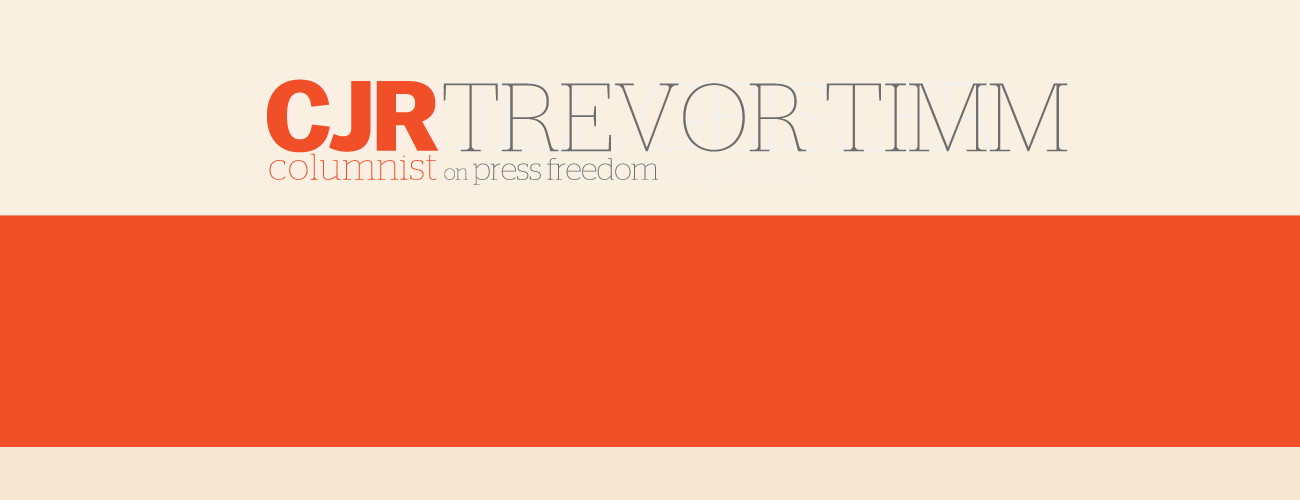Sign up for The Media Today, CJR’s daily newsletter.
The Washington Post made waves on Thursday when it published the full transcripts of President Trump’s erratic phone calls with the leaders of Mexico and Australia that occurred just after he was inaugurated.
Despite their clear news value, some journalists and pundits questioned whether the leaked transcripts should be published. David Frum, a George W. Bush speechwriter and current editor at The Atlantic, led the charge in a widely cited article, claiming that “leaking the transcript of a presidential call to a foreign leader is unprecedented, shocking, and dangerous.”
ICYMI: “I don’t tweet. I don’t care.”
The hyperbolic nature of this statement is only surpassed by Lawfare’s Paul Rosenzweig, who wrote that the person who leaked the transcripts is “doing as much damage, if not more, to the United States than he ever will. Really.”
Really?
Far from being criticized for publishing these leaked transcripts, The Washington Post should be commended. The Trump administration has spent the last few months trying to cut off all avenues of transparency to the White House, refusing to release visitor logs, keeping Trump’s schedule opaque, limiting the information in readouts of calls to foreign leaders, refusing to hold a presidential press conference since February, and even demanding journalists do not record the administration’s daily press briefings. At the same time, the president spent his days rattling the leaders of foreign countries, expanding wars across the Middle East, and starting international incidents via Twitter.
The Trump administration may complain all day about leaks, but leaks are increasingly the only way the American public can learn what the administration is really doing. And the news value of these transcripts could not be more obvious: They showed Trump did not know basic facts, that he asked a foreign leader to lie to the press for him, that he knew from the start that his signature campaign promise to “make Mexico pay for the wall” was bogus, and that he has no sense for how allies should cooperate with each other.
Yet, as Frum argues:
No leader will again speak candidly on the phone to Washington, D.C.—at least for the duration of this presidency, and perhaps for longer. If these calls can be leaked, any call can be leaked—and no leader dare say anything to the president of the United States that he or she would not wish to read in the news at home.
First, you’ll notice that no one criticizing these leaks seems to be arguing Trump or his counterparts said anything remotely sensitive in these calls that would constitute “damage” to national security. The worry seems to lie in the hypothetical idea that because the Post published a transcript of Trump’s calls on this one occasion, it will lead to an avalanche of leaks where no call with a foreign leader—no matter how sensitive—is safe, thereby grinding diplomatic relations to a halt.
This is absurd. The Washington Post does not just blindly publish anything and everything that is leaked to them (and a leak like this has always been and will always be incredibly rare). Newspapers, when they receive sensitive information like this, almost always go through a process of skeptically looking at whether publishing a particular document will affect national security. Clearly here, the public interest far outweighed any damage, which was speculative at best.
ICYMI: A hidden message in memo justifying Comey’s firing
By and large, national security “experts” are always making ominous and vague pronouncements about how one leak or another will lead to catastrophe at some point in the future when, in fact, it never actually comes to pass. We can look to Chelsea Manning’s disclosure of State Department cables in 2010 for an apt analogy here. While Manning’s leaks were incredibly newsworthy—cited thousands of times in countless publications over the years—many denounced them at the time on the grounds they would lead to a total breakdown in diplomacy. Only Secretary of Defense Robert Gates was willing to be truthful to the American people. He said at the time:
Now, I’ve heard the impact of these releases on our foreign policy described as a meltdown, as a game-changer, and so on. I think those descriptions are fairly significantly overwrought. The fact is, governments deal with the United States because it’s in their interest, not because they like us, not because they trust us, and not because they believe we can keep secrets….Is this embarrassing? Yes. Is it awkward? Yes. Consequences for U.S. foreign policy? I think fairly modest.
It turns out he was right. And the exact same principle applies to Trump’s calls. Of course foreign leaders are going to continue to talk to the president. Regardless, foreign leaders are well versed on Trump’s incompetence at this point, and will make adjustments about the sensitivity of their calls whether there are leaks or not—especially given Trump’s penchant for broadcasting sensitive information himself.
Now, of course, no one is arguing that the president shouldn’t be able to ever have confidential conversations, or that no leaks can potentially be dangerous. (For example, Frum was a key member of the Bush administration when they were making the public case for the war in Iraq. The White House or its allies notoriously leaked intelligence to an unskeptical post-9/11 press that turned out the be false yet led to the nation’s worst foreign policy disaster in a generation.) But there is no question that what The Washington Post published is important for the American public to know.
If there’s anything that’s “unprecedented, shocking, and dangerous” about these leaks, it’s Donald Trump’s foreign policy. And the more the American public knows about it, the better.
ICYMI: Photos reveal media’s softer tone on opioid crisis
Has America ever needed a media defender more than now? Help us by joining CJR today.



